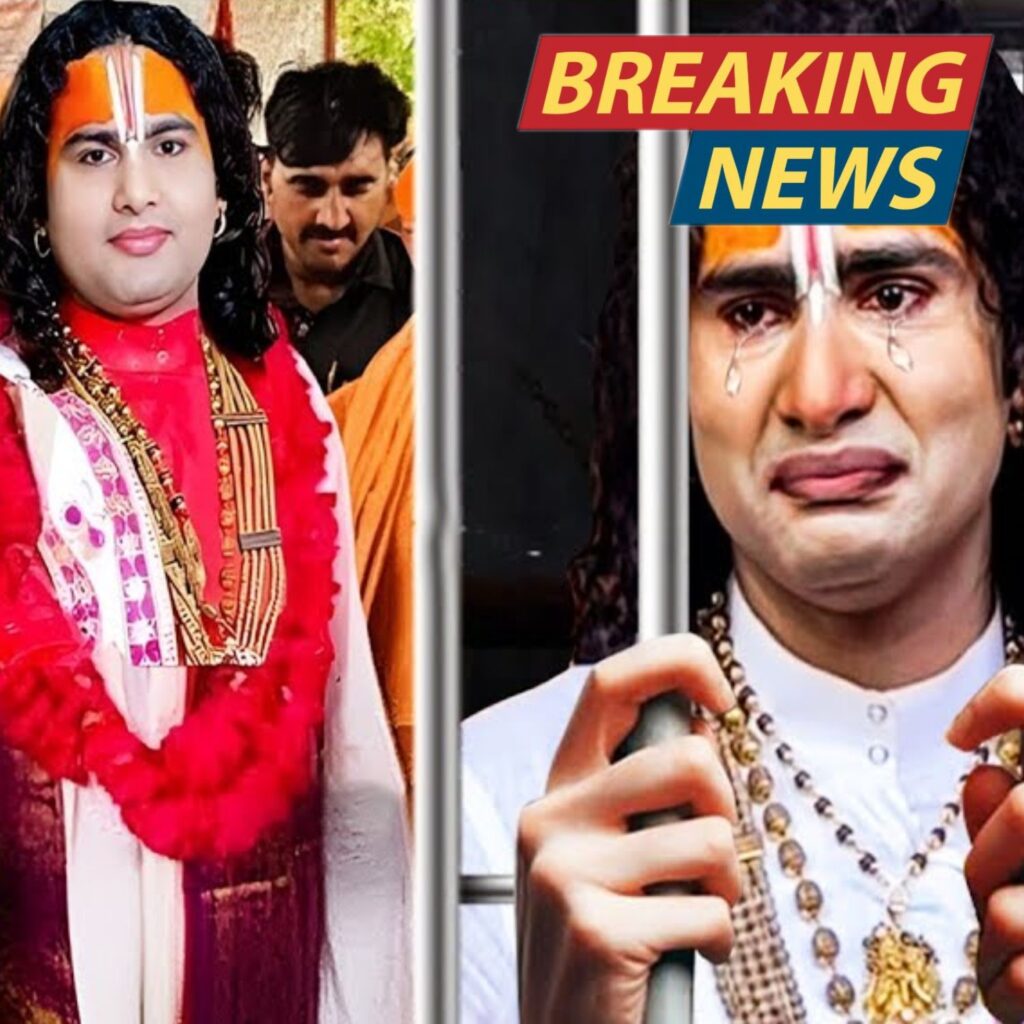🔥Will Aniruddhacharya Baba Be Arrested? Shocking Revelations Exposed!
.
.
.

The Aniruddhacharya Baba Controversy: Faith, Politics, and a Divided Society
It began like any other day, but soon, a storm was brewing in the world of Indian spirituality and politics. Aniruddhacharya Baba—known affectionately to his followers as “Phunki Baba” or “Funky Baba”—once celebrated for his soulful discourses, suddenly found himself at the center of a raging controversy.
This time, it wasn’t his devotional sermons or sweet words that caught the nation’s attention. Instead, it was a series of statements accused of dividing society and hurting the dignity of daughters, sparking outrage across Uttar Pradesh and beyond.
The Spark that Lit the Fire
During a religious event, Aniruddhacharya Baba made remarks that many believed insulted women and seemed to support regressive ideas like child marriage. His comment about 25-year-old daughters having “been with four men” spread like wildfire, igniting anger and disbelief. These words weren’t just seen as disrespectful—they were viewed as an affront to womanhood and a blatant attempt to sow division along caste and religious lines.
People began to question: How could a preacher, whose platform should flow with devotion and wisdom, use it to spread poison and patriarchy?
The Political Storm
The controversy quickly spilled over from religious circles into the corridors of power. The Samajwadi Party, led by Akhilesh Yadav, launched a full-scale attack against the Baba. Prominent leaders like Priya Saroj and Rajeev Rai joined the chorus, demanding his arrest and questioning whether the stage of faith had become a platform for targeting women’s dignity.
A resurfaced video from 2023 added fuel to the fire. In it, Akhilesh Yadav confronted Aniruddhacharya Baba on the roadside, asking him a simple question about Lord Krishna. When the Baba’s answer didn’t satisfy him, Akhilesh declared, “From this point, our paths diverge. Don’t ever call anyone ‘Shudra’ again.” What seemed like a minor exchange at the time now became a focal point in a much larger debate about caste, religion, and leadership.
The Man Behind the Controversy
Aniruddhacharya Baba, born Aniruddh Ram Tiwari in Jabalpur, Madhya Pradesh, was raised in a deeply religious family and founded the Gauri Gopal Ashram in Vrindavan. Known for his Bhagwat Purana discourses and social work, he gained fame as “Phunki Baba,” even earning recognition in the World Book of Records for his online popularity. But controversy has followed him before—his past remarks about women’s beauty being a “curse,” and comments about Lord Shiva, have repeatedly landed him in hot water.
A Battle for Society’s Soul
As the Samajwadi Party intensified its campaign, calling the Baba a “fake guardian of Sanatan Dharma,” the issue grew beyond one man. It became a battle over the soul of society: Should religious leaders be allowed to undermine women’s dignity and unity in the name of faith? Or was this a political game, with religion dragged into the mud for electoral gains?
Supporters of Aniruddhacharya Baba argued that his words were misunderstood or taken out of context. On social media, they claimed he was being unfairly targeted for political reasons. But activists and party supporters demanded action, calling for his arrest and legal accountability.
A Nation at a Crossroads
As the 2027 Uttar Pradesh elections approach, the controversy is more than just a headline—it’s a reflection of the deep divisions in Indian society. The Samajwadi Party sees an opportunity to rally Dalits, backward classes, and women by standing up to figures like Aniruddhacharya Baba, while the BJP remains silent, perhaps waiting for the right moment to leverage the issue.
In the end, the question remains: Will Aniruddhacharya Baba apologize, as he did after his controversial remarks about Lord Shiva? Or will the political firestorm continue to rage, with calls for his arrest growing louder?
This is more than a story about one man—it’s about the struggle between faith and politics, tradition and progress, and above all, the dignity of women in a changing India.
News
गरीब पति को छोड़ गई थी पत्नी, 5 साल बाद जब पति ‘CEO’ बनकर लौटा… इंसानियत रो पड़ी
गरीब पति को छोड़ गई थी पत्नी, 5 साल बाद जब पति ‘CEO’ बनकर लौटा… इंसानियत रो पड़ी गरीब पति,…
इंस्पेक्टर पत्नी ने रिश्ता तोड़ा… सालों बाद पति SP बनकर लौटा, फिर जो हुआ..
इंस्पेक्टर पत्नी ने रिश्ता तोड़ा… सालों बाद पति SP बनकर लौटा, फिर जो हुआ.. अध्याय 1: सपनों की नींव रमेश…
पति को ‘गार्ड’ समझकर किया अपमान, वो शहर का सबसे बड़ा अफसर निकला! 😱
पति को ‘गार्ड’ समझकर किया अपमान, वो शहर का सबसे बड़ा अफसर निकला! 😱 **रोहन और काजल: एक अंडरकवर हीरो…
धर्मेंद्र की आखिरी वसीयत का राज || सालों पहले लिखी वसीयत ने मचाया कोहराम || Dharmender Property bank
धर्मेंद्र की आखिरी वसीयत का राज || सालों पहले लिखी वसीयत ने मचाया कोहराम || Dharmender Property bank धर्मेंद्र देओल…
धर्मेंद्र की छुपी हुई डायरी ने खोला सारा राज || Sunny Deol aur Hema Malini Ne salon bad Kiya faisla
धर्मेंद्र की छुपी हुई डायरी ने खोला सारा राज || Sunny Deol aur Hema Malini Ne salon bad Kiya faisla…
धर्मेंद्र की एक गलती बनी आखिरी ख्वाहिश || ऐसे होगा पहली और दूसरी पत्नी का मिलन
धर्मेंद्र की एक गलती बनी आखिरी ख्वाहिश || ऐसे होगा पहली और दूसरी पत्नी का मिलन धर्मेंद्र देओल की आखिरी…
End of content
No more pages to load






